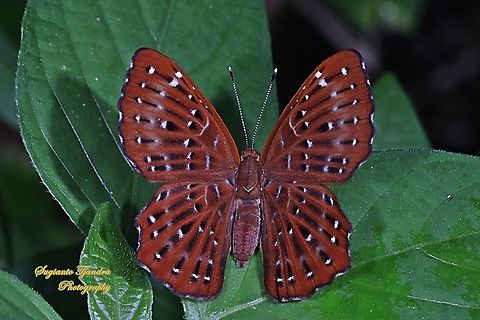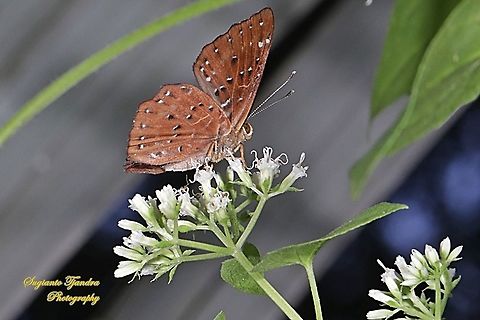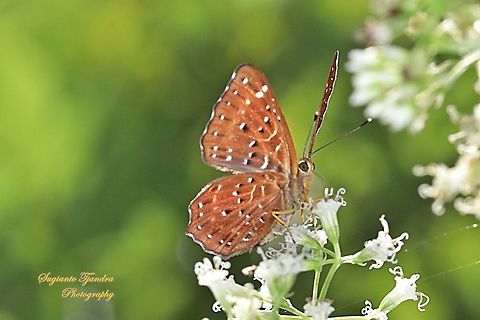
Appearance
For a key to the terms used, see :Glossary of entomology terms.Like many tropical butterflies they show different wet- and dry-season forms.

Naming
* "Z. f. flegyas" Assam, northern India, southern Yunnan⤷ "Z. f. indicus" Fruhstorfer, 1898 Yunnan
⤷ "Z. f. albipunctatus" Butler, 1874 Peninsular Malaya, Singapore
⤷ "Z. f. allica" Burma, Thailand, Langkawi, Indo China
⤷ "Z. f. annamensis" Fruhstorfer, 1912 Annam
⤷ "Z. f. sipora" Riley Mentawai
⤷ "Z. f. arimazes" Fruhstorfer, 1912 Lombok
⤷ "Z. f. balinus" Fruhstorfer, 1912 Bali
⤷ "Z. f. celebensis" Fruhstorfer, 1899 central Sulawesi
⤷ "Z. f. confucius" Hainan
⤷ "Z. f. hostius" Fruhstorfer, 1912 northern Borneo
⤷ "Z. f. javanus" Moore, 1902 Java
⤷ "Z. f. phyliscus" Fruhstorfer, 1912 Sumatra
⤷ "Z. f. retiarius" Grose-Smith, 1895 Sumbawa
⤷ "Z. f. sosiphanes" Fruhstorfer, 1912 southern Sulawesi
⤷ "Z. f. sparsus" Fruhstorfer, 1898 Nias island
⤷ "Z. f. strigatus" Pagenstecher Sumba
⤷ "Z. f. hondai" Hayashi, 1976 Palawan

Reproduction
Adult: length.75 of an inch. Ovate, extremely flattened, inconspicuous. Colour pale green, head and anal segment slightly lighter; all the segments laterally rounded, covered with a whitish down, especially at the sides; an indistinct double longitudinal dorsal darker-green line throughout, enclosing a minute orange spot on seventh and eleventh segments; middle segments more than twice as broad as they are long; legs pale green, set well beneath the animal and rather close together. Full-grown at the end of March. Larva when about to change into the pupal state attaches itself to a patch of silky web, by the last segment, to the underside of a leaf of the food-plant, with the head towards the apex, and is girt about the middle with another web.Larva feed on Maesa species.
References:
Some text fragments are auto parsed from Wikipedia.